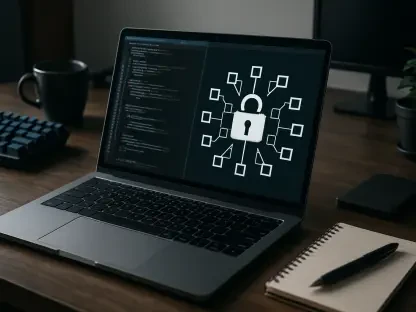In early July 2024, Universal Music Group (UMG), the world’s largest music company, identified unauthorized activity within one of its internal applications. A subsequent investigation revealed that sensitive customer information, including names and Social Security Numbers, had been exfiltrated. This breach affected 680 individuals, including one resident of Maine. UMG promptly notified the impacted individuals and the Office of the Maine Attorney General, underscoring the significance and immediacy of the breach. While the attack’s scale might seem limited when compared to other massive breaches, the compromised data’s sensitivity presents substantial risks. Names and Social Security Numbers are prime targets for identity theft and phishing attacks, potentially leading to more severe future cybersecurity threats.
Despite the seriousness of the breach, UMG assured that there is currently no evidence of misuse of the stolen information. However, mindful of the potential future dangers, the company proactively offers credit monitoring and identity theft protection services through Experian’s IdentityWorks for two years. This action is indicative of a growing trend among companies to provide immediate protection and long-term monitoring solutions to mitigate potential fallout. The breach at UMG not only highlights the ongoing challenges organizations face in securing sensitive data but also calls attention to the corrective measures companies can take post-breach to protect their customers.
Immediate Impact and Company Response
UMG’s swift response to the breach involved a comprehensive investigation aimed at understanding the extent of the compromise. Although the number of affected individuals is relatively small compared to other significant breaches, the severity of the compromised data — specifically names and Social Security Numbers — poses substantial risks for identity theft and phishing attacks. Identity theft, in particular, can lead to severe financial and personal consequences, making the protection of such data crucial. The gravity of the situation underscores the importance of rapid and effective incident response protocols.
To address and mitigate potential future risks, UMG is offering the affected individuals credit monitoring and identity theft protection services through Experian’s IdentityWorks for two years. This proactive step underscores the company’s commitment to safeguarding their customers and aligns with industry best practices. The two years of monitoring provided by Experian’s IdentityWorks suggests a dedication to long-term customer protection, as the consequences of such data breaches can manifest long after the initial incident. The company’s efforts reflect a broader industry trend of emphasizing both immediate and sustained protective measures following a cyberattack.
Nature of the Attack and Unanswered Questions
UMG has not divulged specific details about the nature of the attack, leaving questions about whether it was a ransomware incident or another form of cyberattack. Typically, ransomware attacks involve the theft and encryption of data, but an emerging trend sees some attackers forgoing encryption to streamline their operations. The absence of detailed information about the attack’s nuances, including its execution and the attackers’ identity, leaves room for speculation and raises broader concerns about organizational vulnerabilities. The fact that no group has claimed responsibility adds another layer of complexity to the scenario.
The incident highlights the persistent and evolving nature of cyber risks, even for organizations like UMG that are well-resourced and technologically advanced. The breach serves as a stark reminder that all organizations, regardless of size or industry, are susceptible to sophisticated cyber threats. The need for robust cybersecurity measures and expansive incident response strategies becomes increasingly vital. This breach underscores the critical importance of ongoing investment in cybersecurity infrastructure, continuous monitoring, and regular updates to security protocols to defend against increasingly sophisticated cybercriminal tactics.
Broader Implications for Large Corporations
UMG, headquartered in the Netherlands, commands a vast catalog of artists and several renowned labels such as Capitol Records, Def Jam, and Republic Records. The breach underscores the vulnerabilities large corporations face, even those with significant resources dedicated to cybersecurity. The incident illustrates that even the most prominent and financially secure companies are not immune to cyber threats. It highlights the necessity for continuous investment in advanced cybersecurity infrastructure and practices to protect sensitive data and maintain customer trust.
The response to breaches, like UMG’s approach of promptly informing affected individuals and providing protective measures, reflects a growing consensus on the importance of transparent and responsible handling of data breaches. This approach not only protects the affected individuals but also aligns with best practices recommended by cybersecurity experts and legal advisors. Such transparency ensures compliance with regulatory standards and helps maintain customer trust. The handling of the breach by UMG indicates an awareness that timely and transparent communication is crucial to managing the fallout and preserving the integrity and reputation of the organization.
Comparisons with Other Recent Breaches
The UMG cyberattack adds to a series of recent cybersecurity events, illustrating the increasing frequency and sophistication of attacks across various sectors. Other notable breaches, such as those experienced by ADT and American Water, show a troubling trend of cyberattacks targeting critical infrastructure and essential services. These attacks highlight sectors that cybercriminals find attractive due to the high stakes involved, whether for financial gain or other malicious intents. This pattern of attacks underlines the necessity for enhanced cybersecurity measures and stricter regulatory oversight across all industries.
Companies are investing in advanced security measures, comprehensive employee training programs, and cutting-edge threat intelligence to keep up with evolving cyber threats. Regulatory frameworks designed to protect personal data are becoming more stringent, pushing companies towards higher standards of data security and breach management. The trend shows a proactive shift in how organizations approach cybersecurity, focusing on preemptive measures and thorough incident response planning. These efforts are not just about compliance but also about safeguarding critical operations and maintaining public trust in an increasingly digital world.
Collaborative Efforts in Breach Management
In early July 2024, Universal Music Group (UMG), the leading music company globally, identified unauthorized activity within one of its internal applications. An investigation soon confirmed that sensitive customer data, including names and Social Security Numbers, had been stolen. This breach impacted 680 individuals, among them one resident of Maine. UMG promptly informed both the affected people and the Maine Attorney General’s Office, emphasizing the breach’s seriousness.
While the number of affected individuals may be small compared to larger breaches, the sensitivity of the compromised data poses significant risks. Social Security Numbers and names are highly valuable for identity theft and phishing attacks, which could result in more severe cyber threats in the future.
Despite the gravity, UMG reassured that there’s no current evidence of misuse of the stolen information. However, recognizing potential future dangers, the company is offering credit monitoring and identity theft protection services via Experian’s IdentityWorks for two years. This proactive measure reflects a growing trend where companies provide immediate and long-term protections post-breach. The UMG breach underscores the ongoing challenges in data security and the importance of responsive measures to safeguard customers.









